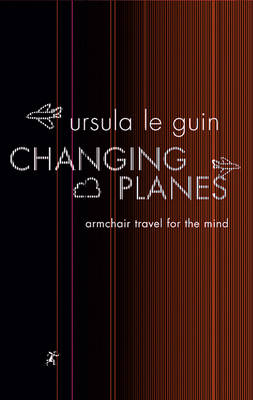
nannah
Written on Sep 8, 2022
Content warnings:
- rape
- r ableist slur
- incest (in detail)
- ableist cr slur
Representation:
N/A
A woman named Sita Dulip discovers a way to transport herself from our earthly plane to nearly innumerable others--as long as she's waiting in an airport, is miserable, and is suffering from mild indigestion. Since then this type of travel been done by all sorts of people all around the globe, and in this collection one writer shares her experiences.
I think a big reason why I didn’t enjoy this--as an overall, cohesive work or looking at each story individually--as much as Le Guin’s other works is because firstly, these stories are less like actual short stories and more like ethnographic studies. Secondly, they lack a central heart that connects them in a more coherent way than the concept can alone (which would have worked better if there wasn’t a character “present” in every single one of them). I write “present” in quotation marks, because most of the time we’re just reading her travel diary. The stories contain fascinating notes on culture and world building creation, as well as the ever-present and relevant social commentary, but they will never be as engrossing as something that has an actual narrative.
Oh, but I love “The Nna Mmoy Language,” even if it is one of the above-type ethnographic stories. Le Guin is such an insightful and profound thinker. And overall an incredible inspiration.
But, of course, every collection of short stories is a grab bag, and this one is no exception. Unfortunately, most are just okay, with only a few standouts on either extreme. My least favorite is “The Fliers of Gy.” Not only does it use the cr*ppled slur many, many times, it attempts to use a disabled character to speak from a neuro-atypical pov to express superiority over neurotypicals/able-bodied people. It goes so far as to have the “disabled” people refuse to marry ableds. Many authors have done this “reverse oppression” kind of formula with the intent of getting their audience to become aware of a certain issue (like Malorie Blackman’s Noughts & Crosses and antiblack racism). As an autistic and cr*ppled person myself, this story left me more uncomfortable than anything, but I think I’d like to hear from another disabled and/or autistic person’s opinion on it before I go so far as to say it’s ableist or anything!
The last story is definitely strong, but it also shows a major issue I had with the collection as a cohesive unit. By the way this work introduces the narrator, it seems like it should have started off the collection. It’s the only story to actually introduce the narrator at all or give us any small idea of what she’s like outside of interviewing people--besides the book’s concept. She’s what’s holding the collection together, the traveler visiting and writing about each different plane. Most of the time, though, she’s not even present in the stories at all, which makes the collection’s theme less strong and more like a very polished, beautifully written book of notes about fictional cultures.
But! I was never bored, and I never counted down the pages. I even took my own notes. So it’s still a book worth reading, if you know why you’re reading.
